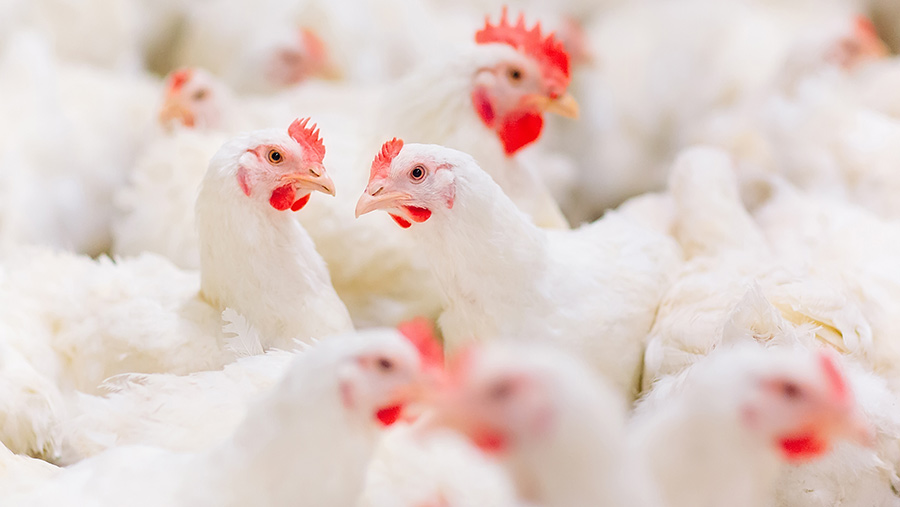Conventional pullets permitted in organic poultry flocks
 © Davit85/Adobe Stock
© Davit85/Adobe Stock Defra has given the greenlight for organic poultry flocks to continue using conventionally reared pullets and a small percentage of inorganic feed.
According to Robert Gooch, chief executive of the British Free Range Egg Producers Association (Bfrepa), the organic sector has a long-standing difficulty in sourcing organic replacements.
“There is an ongoing problem in finding supplies of organically produced pullets and certain protein feeds.
See also: 9 ways to help keep housed flocks healthy this winter
“But allowing flocks to retain their organic status while using conventional pullets requires a government amendment to legislation,” Mr Gooch explained.
Normally, each derogation lasts for three years and the most recent was due to expire in on 31 December 2022.
This would effectively have shut down organic flocks because the supply of organically reared pullets cannot meet the commercial scale required.
Derogation
However, Defra has now published the latest derogation for conventional pullet use under The Organic Production (Amendment) (No 2) Regulations 2022.
These were laid in parliament on 6 December and permit the use of non-organic pullets on UK farms until 31 December 2025.
As well as allowing non-organic pullets, the amendment permits the use of up to 5% non-organic protein feed for both pigs and poultry until 31 December 2025.
A Defra spokeswoman added: “There is a critical business need to extend these derogations to continue to support businesses, otherwise many organic egg producers and organic food producers will no longer be able to produce organically.
“This amendment will allow organic production to continue undisrupted until the sector can produce organically.”
Putting the case for meat and bonemeal
The National Pig Association (NPA) has mounted a robust argument for the reintroduction of processed animal protein (PAP) in rations.
European legislation already permits the use of poultry derived meat and bonemeal in pig rations, and pig derived meat and bonemeal in poultry rations, which is a relatively cheap and sustainable alternative to soya, according to the NPA’s Pig Industry Group.
The NPA group said British pig producers should be allowed to have access to this readily available alternative to allow them to compete with their EU counterparts.
It wants the government to approve the process, under the strictest of conditions to ensure its safety.
To ensure PAP is safe, a number of barriers would need to be overcome, including logistics, cost and public acceptability, the group said.
NPA chief executive Lizzie Wilson explained that about 1.3m tonnes of pig and poultry PAP was produced annually with most going into fish and pet food.
“As a sustainable alternative, protein [PAP] could ultimately help lower our environmental impact and pig feed costs, while offering new markets for pig products,” said Ms Wilson.
“PAP also plays an important role in reducing food waste,” she added.
“We believe that GB producers deserve the same opportunities as EU producers, so we support a policy which would allow the feeding of pig PAP to poultry and vice versa, provided it is properly regulated.”

